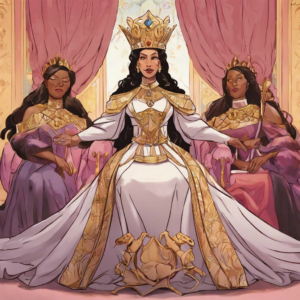Was sind typische Ossi Namen?
Die ostdeutsche Kultur ist eine wahre Schatzkammer voller einzigartiger Namen und Traditionen. Diese typischen Ossi Namen spiegeln die bunte und vielfältige Geschichte der Region wider. Egal ob klassische oder moderne Namen, sie alle sind voller Charakter und erzählen Geschichten von Menschen, die in einer aufregenden Zeit voller Veränderungen lebten. Lassen Sie uns gemeinsam eintauchen in die wunderbare Welt der ostdeutschen Namen!

Herzlich Willkommen, liebe Freunde der Rätselhaftigkeit! Heute begeben wir uns auf eine spannende Reise in die Welt der ostdeutschen Namen. Haben Sie sich jemals gefragt, welchen Namen die Menschen in den neuen Bundesländern bevorzugen? Gibt es typische Ossi-Namen oder unterscheiden sie sich kaum von den westdeutschen Namen? Wir werden gemeinsam in die Tiefen der ostdeutschen Geschichte eintauchen, um herauszufinden, was einen richtigen Ossi-Namen ausmacht und ob diese Traditionen heute noch weitergeführt werden. Also, schnallen Sie sich an und lassen Sie uns loslegen!
„Ossis with funky names: explore the quirks and charm of typical East German names!“
East Germany may have existed for only four decades, but its impact on German culture is undeniable. One of the most fascinating aspects of East German society was its unusual approach to naming children. From the quirky to the downright bizarre, East German names were unlike anything else in Europe.
Discover the rich cultural heritage behind unique Ossi names that survived the fall of the Berlin Wall.
Despite the unpopularity of the East German regime, many of the names it bestowed on its citizens have endured. These names not only reflect the cultural and historical legacies of the region but also provide a fascinating insight into the everyday lives of ordinary East Germans.
Names like Anja, Antje, and Andreas are surprisingly common in East Germany, reflecting its rich history and the influence of Slavic, Nordic, and Germanic cultures. Other names, like Enrico, Till, and Ulf, pay tribute to East Germany’s socialist ideals and the wider political landscape of the Cold War.
From Rico to Ines: The colorful and diverse world of East German names you didn’t know.
East German names are full of surprises. Who knew that East Germans loved names beginning with the letter ‚K‘; Katja, Karin, and Kristina are all popular names in the region. And while Western Europeans often shy away from unisex names, East Germans embrace them wholeheartedly; names like Jana, Steffi, and Tilo are all used for both boys and girls.
One of the most fascinating aspects of East German naming traditions is the influence of the region’s distinctive dialects. Names like Gunnar, Igor, and Jens all have their roots in the local East German dialects of Low German and High German.

Why East Germans love ‚K‘-sounds in their names: the linguistic legacy of Old Prussia.
It’s no secret that the East Germans love a good ‚K‘-sound. But why is this so? The answer lies in the linguistic legacy of Old Prussia, a former Baltic state that was conquered by the Teutonic Knights in the 13th century.
The Old Prussian language had a distinctive range of sounds, including many ‚K‘-sounds that were not present in other Germanic languages. When the Old Prussians were assimilated into the wider German-speaking world, they brought their unique linguistic heritage with them, including their love of the ‚K‘-sound in naming their children.
Fun fact: Do you know any famous East Germans with iconic names? Get ready to be surprised!
- Angela Merkel – Germany’s first female chancellor has a wonderfully East German name, reflecting her roots in the region. Her name means „angelic“ in German.
- Wolfgang Joop – The legendary fashion designer has a name that is quintessentially East German. Wolfgang was one of the most popular names in the region, and Joop comes from the local East German dialect, meaning „Heep“ or „Heap“.
- Udo Lindenberg – The rock legend’s name is a combination of two very East German names: Udo and Lindenberg. Udo is a popular East German name, and Lindenberg is a place in the region.
East German names are full of surprises, reflecting the region’s unique cultural and linguistic heritage. From the quirky to the charming, these names are a testament to the resilience and creativity of the people of East Germany.
Fazit: Obwohl Ossi Namen oft als stereotypisch und veraltet betrachtet werden, gibt es dennoch eine Vielzahl von Namen, die auch heute noch von Ostdeutschen getragen werden und Teil ihrer Identität sind. Von nostalgischen Namen wie Renate und Jürgen bis hin zu modernen Namen wie Leonie und Tom, gibt es eine reiche Auswahl an Optionen, die die Vielfalt der Ostdeutschen Gesellschaft widerspiegeln. Letztendlich sind Namen nur ein kleiner Teil unserer Identität, aber sie können eine starke Verbindung zu unserer Vergangenheit und unserem Erbe sein. Egal welchen Namen wir tragen, wir sollten stolz darauf sein und uns immer daran erinnern, dass wir zusammen Teil einer diversen und aufregenden Kultur sind.








